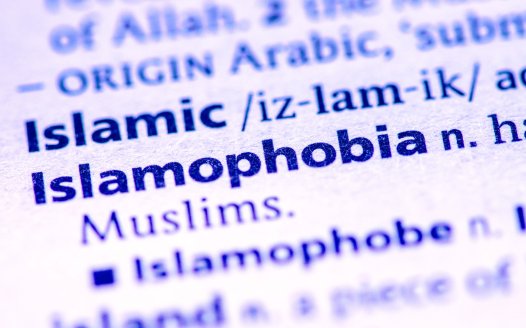Secularists at “serious” risk in Bangladesh, UK government says
Posted: Wed, 4th May 2022
Secularists and atheists in Bangladesh are at "serious" risk of persecution, new UK government guidance says.
Home Office guidance for assessing refugee, asylum and human rights claims says those who openly express atheist beliefs are likely to be subject to discrimination by the state or societal violence that amounts to "persecution or serious harm".
The guidance, published in March, says people who have expressed "atheistic or secularist beliefs", particularly in relation to Islam, have been arrested and detained on the grounds of "religious defamation".
Additionally, high profile atheist and secularist bloggers and activists deemed to have "defamed Islam" face "a high risk" of threats and violence by Islamist extremists.
Bangladesh's blasphemy laws
In Bangladesh it is a criminal offence to publish material "deemed to hurt religious sentiment".
Authorities have used legal provisions such as the Information and Communication Technology Act or the 2018 Digital Security Act (DSA) to harass, detain or prosecute online bloggers and activists. The United Nations has said the DSA is not in line with international human rights laws. The DSA can be applied to material published outside of Bangladesh.
Several atheist bloggers left Bangladesh following attacks, some fatal, by Islamists between 2013 and 2018. Whilst continuing to blog from abroad, they fear arrest or retaliation by Islamic fundamentalists if they return to their country.
Rationalist blogger Marufur Rahman Khan said Islamists "can freely publish books and air their opinion against atheism, secularism, feminism, and homosexuality". But atheists and secularists "are not allowed to express their beliefs," he said.
Atheists, secularists and others who have recently been arrested for comments about Islam include:
- An Islamist group called for the death of a Hindu man after accusing him of insulting the Islamic prophet Muhammad on Facebook in 2019. After the man was arrested under the DSA, it was revealed that his Facebook account had been hacked and he was being blackmailed for money under threat of more 'blasphemous' material being published in his name.
- Musician Rita Dewan was detained for criticising Islam on YouTube in 2020. She faces up to 10 years' imprisonment and a fine of up to £17,600 if convicted under the DSA.
- Sufi Muslim singer Shariat Sarker was imprisoned under the DSA in 2020 after an Islamic scholar filed charges that comments made by Sarker on YouTube hurt the "religious sentiments" of Muslims. The offending remarks included arguments that the Qur'an does not prohibit music, and criticisms of religion being used as a political tool.
- In 2021, 17 year old Hindu girl Dipti Rani Das was arrested for "hurting religious sentiment" for a Facebook post critical of Islam. She could be sentenced up to seven years in prison if convicted.
- This year, Bangladeshi author Shahriar Dipu was handed a four year jail sentence for "offending Islam" in two books.
The guidance says Bangladesh's laws including the DSA encourage extremists to target individuals suspected of blasphemy. Atheists and people who are accused of 'hurting religious sentiment' and are open about their beliefs are unlikely to be afforded effective protection by Bangladeshi authorities. Instead, the government has "tended to attribute blame" for militant attacks to the victims for criticising religion.
The guidance also highlights the risks faced by Ahmadi Muslims in Bangladesh. It says the government has "come under pressure" from Islamist groups to declare Ahmadis 'non Muslim'. There is also evidence that police have been instructed to place Ahmadi Muslims under nationwide surveillance.
NSS comment
National Secular Society Engagement Officer Buddha Halder said: "We welcome the UK government's acknowledgement that anyone who expresses secularist or atheist viewpoints, or anything deemed to insult Islam, is at high risk in Bangladesh.
"The Home Office must therefore take human rights claims from individuals who are accused of offending religion in this country very seriously.
"And the government must continue to put pressure on Bangladesh to reverse its trend towards Islamist authoritarianism. It must repeal its various blasphemy laws and uphold its constitutional commitments to freedom of expression and freedom of religion or belief."
Freedom of Expression
Democracy cannot exist without the right to free speech. Join our campaign to protect freedom of expression from religious incursions.








